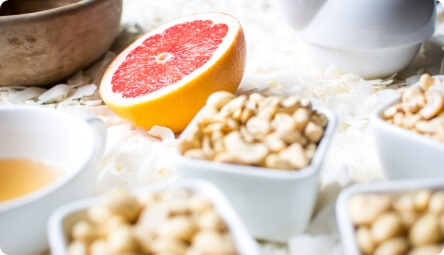Getting the right nutrition can help speed treatment and prevention includes healthy immunity. Tuberculosis (TB) is an infectious disease caused by the bacterium Mycobacterium tuberculosis (MTB). Tuberculosis generally affects
Eat Right to Beat Tuberculosis
Tuberculosis (TB) is an infectious disease caused by the bacterium Mycobacterium tuberculosis (MTB). Tuberculosis generally affects the lungs, but can also affect other parts of the body. The classic symptoms of active TB are a chronic cough with blood-containing sputum, fever, night sweats, and weight loss. General signs and symptoms include fever, chills, night sweats, loss of appetite, weight loss, and fatigue. Significant nail clubbing may also occur One-third of the world’s population is thought to be infected with TB. New infections occur in about 1% of the population each year.In 2014, there were 9.6 million cases of active TB which resulted in 1.5 million deaths.
Tuberculosis is closely linked to both overcrowding and malnutrition, Those at high risk thus include: people who inject illicit drugs, inhabitants, and employees of locales where vulnerable people gather (e.g. prisons and homeless shelters), medically underprivileged and resource-poor communities, high-risk ethnic minorities, children in close contact with high-risk category patients, and health-care providers serving these patients. Chronic lung disease is another significant risk factor. Silicosis increases the risk about 30-fold. Those who smoke cigarettes have nearly twice the risk of TB compared to nonsmokers People who are malnourished or underweight are more likely to get tuberculosis,
Malnutrition can lead to secondary immunodeficiency that increases the host’s susceptibility to infection. In patients with tuberculosis, it leads to reduction in appetite, nutrient malabsorption,

* Good quality protein in the diet protein makes the immunity cells strong as it’s a building block of the body. Protein deficiency may have a particular detrimental effect on the ability of the body to fight tuberculosis. Choose dairy, lean meats, pulses, beans. Eat 2-3 portions daily.
* Daily include at least a source of an antioxidant from colored fruits
* Keep fibers in your diet in the form of whole grain cereals, pulses and germinated legumes which helps to keep gut healthy and removes bad toxins, bad fat from diet.
* Choose a healthy form of fat which is unsaturated oil over saturated oil like olive oil, sunflower oil instead of butter or margarine.
Role of micronutrients
Zinc
Various studies on patients with tuberculosis had shown significantly lower plasma zinc level than those without tuberculosis, irrespective of their nutritional status. An adequate supply of zinc may also limit free radical membrane damage during inflammation.
Your diet should include nuts, beans, fish, lean meat, mushroom, spinach.
Vitamin A
It has been shown that vitamin A has immunocompetent role in human tuberculosis. Vitamin A was reported to inhibit multiplication of virulent bacilli in cultured human macrophages.
Vitamin A is essential for normal functioning of T and B lymphocytes, macrophage activity, and generation of antibody response
Red and orange colored fruits and vegetables should be included on daily basis.
Vitamin D
Vitamin D plays a role in the function of macrophages, and a key factor in host resistance in tuberculosis.
Vit D fortified food includes eggs, fish like tuna, mackerel.
Selenium
The essential trace element selenium has an important function in maintaining the immune processes and thus may have a critical role in clearance of mycobacteria. Selenium has been found as significant factor in the relative risk for developing mycobacterial diseases in HIV positive patients.
Nuts and nut seeds in a moderate quantity should be taken twice a week.
Iron
There are two explanations for the association of low iron status and infection. One is that anemia results from chronic infection and the other is that iron deficiency would increase susceptibility to infection such as tuberculosis.
Green leafy vegetables with a piece of lemon is a healthy tip to enhance iron absorption in body.
Polyunsaturated fatty acids
In a research study, It was concluded that supplementing the diet with (n-3-) fatty acids can affect resistance to M. tuberculosis, whereas supplementing with (n-6-) fatty acids does not.
Combination of olive oil, nuts and cooking oil like sunflower, cottonseed oil, rice bran oil are best.


